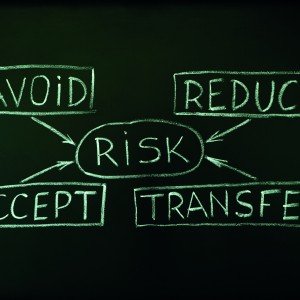Work-related stress
‘Organisations rarely evaluate the impact of psychological health interventions’: HSE’s Phoebe Smith on risk assessments for work-related stress
Human Factors Technical Team Lead previews her upcoming Safety & Health Expo presentation to SHP.
The success of mental health initiatives is undermined by an all-too-common failure to evaluate their impact, according to an expert in the field.
Phoebe Smith, Human Factors Technical Team Lead at the Health and Safety Executive (HSE), was speaking to SHP about her upcoming talk at Safety & Health Expo (SHE) 2023, entitled ‘Stress – the law, workplace challenges and support available’.
The stakes are high for both employee welfare and business productivity. In 2021 and 2022 stress, depression and anxiety accounted for more than half of all cases of work-related illness in Great Britain, affecting 914,000 workers and accounting for 17 million lost working days.
Phoebe Smith works within the HSE’s science division, which supports HSE policy and regulatory activities and improvements to the UK’s safety record via applied research, development and experimentation.
SHP: What is the goal of your presentation?

Phoebe Smith
Phoebe Smith (PS): We’ll be raising awareness of the legal duty to undertake a risk assessment for work-related stress and act to reduce any identified risks.
Organisations have this legal duty under the Health and Safety Work Act and management regs, but awareness is maybe not at the level that it needs to be.
We will also run through what that risk assessment process looks like and why it’s important to refresh it periodically.
SHP: What do you expect attendees will gain from listening to your talk?
PS: There are business benefits from [doing these risk assessments] because if people are stressed their productivity and quality of work is lower. And you’ll be an employer of choice so turnover will go down and you’ll be able to attract the best people.
[I also want organisations to] recognise what they’re doing already [that is working well]. Organisations are doing all sorts of [effective] things and not giving themselves credit.
One thing [our research has] found [for instance] is that organisations often have flexible working written into employee contracts, but often don’t see it as a way to support psychological health because it’s seen as a HR thing. So, I would say HR and health and safety need to talk to each other so that it’s seen as a more holistic management system.
Organisations must evaluate [the impact of interventions and initiatives] to see if they are tackling the issue or issues; if they’re not it might be necessary to tweak them or put in place an alternative idea. There are very few studies where the impacts of interventions have been evaluated.
It staggers me that organisations evaluate everything else but [rarely do so] when it comes to health and safety or psychological health. They add interventions without knowing if they are needed or are having any impact at all.
SHP: Why do you think mental health issues appear to be on the rise? To what degree are employers just getting better at identifying problems that hitherto went unreported or unnoticed?

PS: I think there’s probably two elements.
I don’t think the stigma attached to talking about mental health issues has gone completely, but I do think people are becoming more willing to acknowledge that there are issues.
But I do also wonder [about the impact of dramatic changes] to the nature of work. We’re very much a 24/7 society. We do a lot of international [research for instance that shows] there’s [considerable] demands for early morning calls [spanning different time zones].
I also wonder whether people working remotely places particular demands on line managers in terms of talking to staff and [employees] getting support from coworkers.
In a traditional workplace you might have a tea break and a chat and get social support like that. I can’t say this from a literature review point of view, but it certainly doesn’t feel as though there is the same level of access to support [with remote work].
The gig economy, zero hours contracts and [disruptive] change – for example when organisations buy each other out – [are possible factors fueling the rise in mental health issues too].
I [also] suspect that [factors outside the workplace] like the rising cost of living, massive economic changes and the war in Ukraine [are affecting personal resilience].
SHP: How would you evaluate corporate progress on tackling mental health issues?
PS: I would say that health is always the poor relation of safety and psychological health is the poor relation of health, so we’ve still got a lot of work to do.
But we’re making progress. I helped develop the Management Standards back in 2004 and it’s been quite interesting to see the conversations we had then compared to the conversations we’re having now. Now you can use the word ‘stress’ and people don’t recoil in horror.
But we did a literature review a couple of years ago and spoke to some stakeholders, and still the emphasis is on tertiary interventions: picking up the pieces once people have become stressed rather than what we advocate – taking a proactive, preventative approach.
I think we’ve come a long way, but I feel [the prevailing approach] is still quite reactive.
SHP: Are mental health issues trickier to risk-assess than safety risks that often involve binary dos and don’ts? And how can organisations overcome these challenges?
 PS: I can appreciate why people feel that [mental health issues] would be more difficult to risk-assess and implement interventions for. [There might be dangerous] equipment where if you put a guard on it then you know you are protected, [whereas mental health] is not as cut and dried.
PS: I can appreciate why people feel that [mental health issues] would be more difficult to risk-assess and implement interventions for. [There might be dangerous] equipment where if you put a guard on it then you know you are protected, [whereas mental health] is not as cut and dried.
[Stress is akin to how] some people can be exposed to certain chemicals and have no ill effects, while others can have an [adverse] dermatological reaction. Certain factors can, if not well managed, increase the risk of stress, although people react differently to these factors relative to each other and also at different times.
Although it might not be cut and dried, we’ve created a risk assessment process, the Management Standards approach, which includes gathering all sorts of data and talking to people about their experiences and what they think will improve the situation, so it’s not about making assumptions.
In the HSE we talk about looking for trends in the data [such as] people experiencing very high workloads – a very common stressor – and putting attention and resources into that.
It gives organisations structure, so rather than trying to solve everything, they can focus their attention on factors that are creating the most risk, affecting the most people and are reasonably practicable [to address].
But the Management Standards [are also designed to ensure] individuals don’t fall through the net [if they have a problem that falls outside of these priorities].
It’s a dual approach, but the emphasis is about prevention.
But if people are [taking time off work] with stress, we also have things like the Stress Talking toolkit and organisations do use the Management Standards as a way of bringing people back into the workplace safely.
As a line manager it’s about talking to staff regularly and using the Management Standards as a framework.
The standards don’t actually use the word ‘stress’ anywhere. It’s not asking employees if they are stressed. It’s asking: what’s your workload like? What are your relationships [with colleagues] like? [If there is organizational upheaval] are you clear about the impact?
And if they say their workload is quite high, we don’t say, “oh, you’re stressed about it”; we say, “how can we manage that”?
The role of line managers is critical. So often we find that the interpersonal skills needed are just not selected for when people are promoted or recruited to become line managers, and this can have an adverse impact on the team and them.
‘Organisations rarely evaluate the impact of psychological health interventions’: HSE’s Phoebe Smith on risk assessments for work-related stress
Human Factors Technical Team Lead previews her upcoming Safety & Health Expo presentation to SHP.
Adam Bannister
SHP - Health and Safety News, Legislation, PPE, CPD and Resources Related Topics
British Safety Council Wellbeing Conference: Empowering Employees for Success
Workers facing uncertain future coupled with health and safety risks, new IOSH report says
Legionella Management: Who can be appointed as RP, DRP, AP or CP?



 PS: I can appreciate why people feel that [mental health issues] would be more difficult to risk-assess and implement interventions for. [There might be dangerous] equipment where if you put a guard on it then you know you are protected, [whereas mental health] is not as cut and dried.
PS: I can appreciate why people feel that [mental health issues] would be more difficult to risk-assess and implement interventions for. [There might be dangerous] equipment where if you put a guard on it then you know you are protected, [whereas mental health] is not as cut and dried.
Soooo does that mean when a hazard or risk is “predictable” and not just like, you know, ‘reasonably foreseeable’ best not Risk Assess as if you do you will then actually have to do something, anything about it !? Or, as everyone becomes more responsible for their own elf-an-safety does that still get the employer of the hook enabling them to carry-on passing the buck by claiming a defense of “contributory negligence” when the user operator fails to make “Reasonable Adjustments” or in the case of an employee with either preexisting visual impairments, Dyslexia or Neurodiversity, at a ‘4’ to… Read more »